The White Sheep
Following the publication of The Beacon On The Hill at Christmas 2020, I received lots of messages from readers who enjoyed the story of the errant Vicar of Christ Church, the infamous Mr Newton Ebenezer Howe. As well as those who were, by equal measure, shocked, surprised and intrigued by the Rev. Howe's behaviour during his tenure as Vicar at Christ Church in Swindon, I was delighted to be contacted by two descendants of the disgraced Vicar. They both knew something of his past (although it appears that much was hidden from his children and grandchildren). Nevertheless, they were both surprised to learn of his second prison sentence. However, the story of Rev. Howe's son, Ernest, was one that they were keen to discover. Sometimes, it seems, light can shine from the darkest of places.
During the Rev. Newton Howe's appointment as Vicar of St Mary's and St Ethelbert's, at Luckington near Malmesbury in Wiltshire, his son Ernest was born. Some documents list his birth as 1883, some as 1884. As Ernest grew up in the quiet Wiltshire village, in the privileged position as son of the local minister, he could not possibly have comprehended the disgrace that his father was to bring to the family.
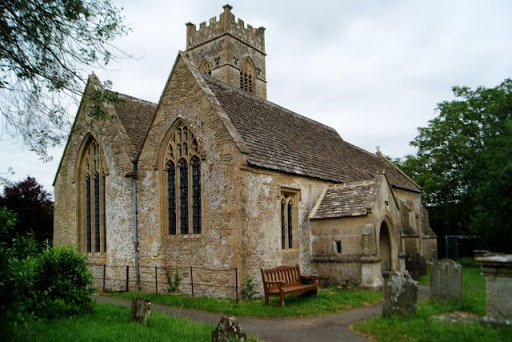
St Mary's & St Ethelbert's Church, Luckington
Ernest John Rimington Howe moved to Christ Church in Swindon with his father and mother when the Rev. Howe became Vicar of the church in 1887. The three-year-old Ernest settled into life at the Vicarage in Bath Road. He was raised by his dedicated and deeply religious mother, whilst his father spent much time away from the parish (see The Beacon On The Hill), it was natural that the young Ernest would want to follow his father into the church. Ernest was studious at school, his mother protecting him from much of the scandal surrounding his father's nefarious activities. Unfortunately, in 1901, as he reached the age of 18, Ernest plans to study theology at University were shattered by the scandal surrounding his father.
A series of stories under the title The Higgledy Piggledy Papers appeared in a London magazine called One and All, in the latter years of the 19th century, in which the writer (who used the name N.E. Howe) started each week with the intention of reaching Tottenham Court Road, however thanks to his chaotic nature and a series of unfortunate incidents, always ended up miles from his intended destination. Each week he would start afresh with, of course, the same result. Every article concluded with the jibe "Higgledy Piggledy N.E. Howe". Whether Ernest's father wrote these articles, in a veiled attempt to plead some sort of extenuating circumstances, or to earn some extra money, is not known. Perhaps an anonymous writer for the magazine had read the story of the Rev. Howe and merely used the name? Perhaps it was just an unfortunate coincidence. Whatever the reason, the nickname "Higgledy Piggledy N.E. Howe" became associated with Ernest's father, and was used to mock Ernest. The effect of the constant reminder of his father's errant behaviour must have been a constant source of humiliation to Ernest.
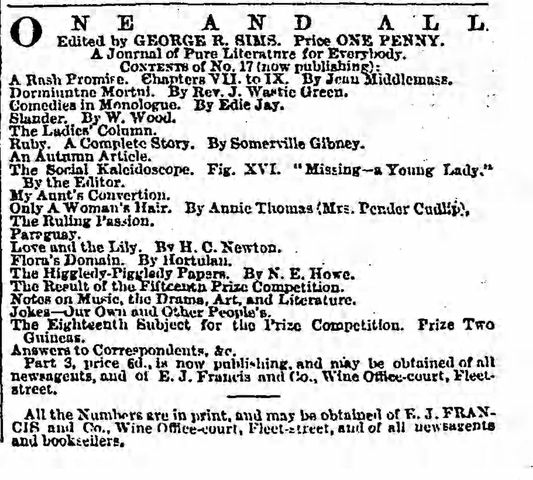
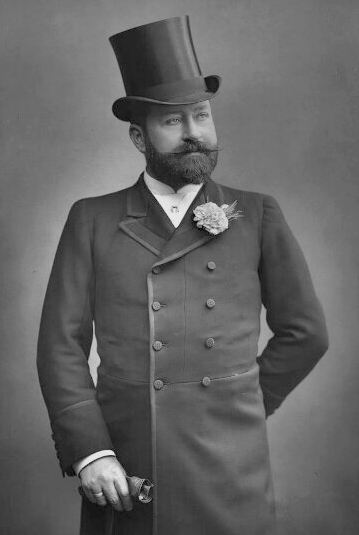
George Sims, prolific journalist and writer
Shortly after the Rev. Howe had been sentenced to his first term of imprisonment at Devizes Jail, Ernest was sent away by his mother to Sussex. Susannah, his mother, found him lodging at the home of a family friend in the small coastal town of Shoreham. Here, distanced from the disgrace brought upon his family by his father, Ernest found employment as a tutor at a small private school in the town. He continued his studies in his spare time, still hoping that the ripples caused by his father's incarceration and fall from grace, would not prevent him from attending university.
The obstacle caused by father's behaviour did not faze the hard-working Ernest, however. By 1908 he was accepted into the Faculty of Religion and Theology at Oxford University to study Divinity. Once at Oxford he excelled as a student and (despite his studies being interrupted by the Great War) emerged with an MA in Divinity. Ironically, his father had arrived in Swindon, claiming to have been awarded an MA from Merton College, although there are no records showing he ever finished his studies at university. It seems that Ernest's hard work meant he had achieved something his father never could. How much the University was aware of the Rev. Howe's behaviour is not known. However, it is certain that it must have proved a major handicap to Ernest's progress. During his degree studies at Oxford, Ernest took lodging in Westminster in London, which enabled him to spend his spare time working as a private tutor to help finance his studies. Sadly, his father - the now penniless and disgraced ex-Reverend Howe - was beginning his second prison sentence at precisely the same time as Ernest commenced his studies. His father was also not present at his son's graduation several years later - his life already in ruins by that stage.
After several minor positions, Ernest was, at last, appointed Senior Curate at St Andrew's in Enfield in 1931. Here, his caring nature and diligence made him a popular member of the parish. He also met and married his wife Ivy. His father had passed away four years earlier and the burden of family disgrace had at last been lifted from Ernest's shoulders. Whether his father's behaviour had adversely affected Ernest's opportunities to pursue his vocation is not known, however the long suffering Ernest was already 47 years of age by this stage.
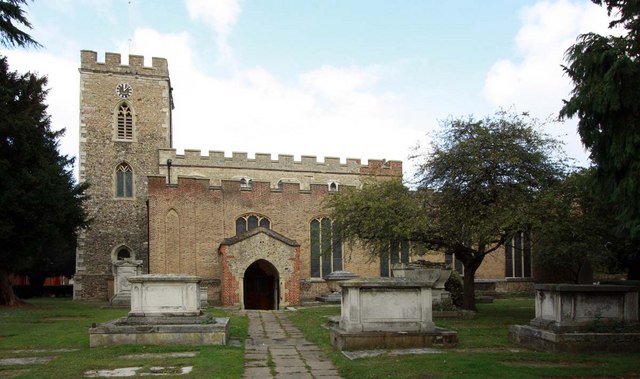
St Andrew's, Enfield
Finally, in 1936, as a reward for his dedication and endeavour, Ernest was appointed Vicar of Saint Leonard Church in the village of Misterton in Somerset. A pleasant parish in the Diocese of Bath & Wells, the living at Misterton was one that Ernest richly deserved. In the presence of a large and welcoming congregation, he was instituted and inducted as Vicar on Sunday 12th July 1936, thus finally excorcising the memory of his father's wrongdoing. The ceremony was carried out by the Bishop of Taunton, Charles Fane De Salis. Already 76 years of age, the Bishop had made a special point of being present to welcome Ernest Howe to Misterton.
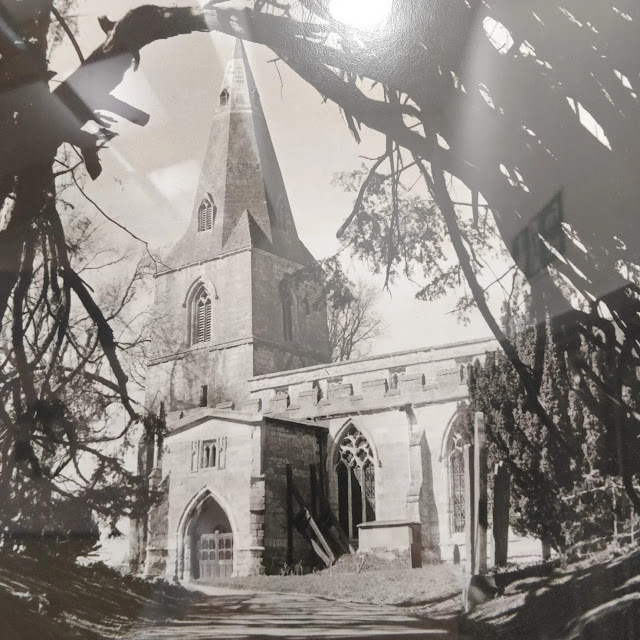
Church of St Leonard, Misterton
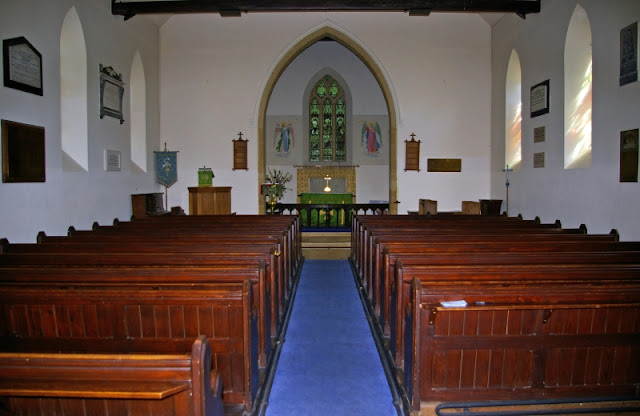
Misterton
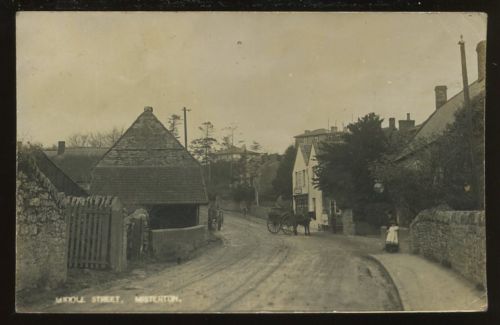
Misterton
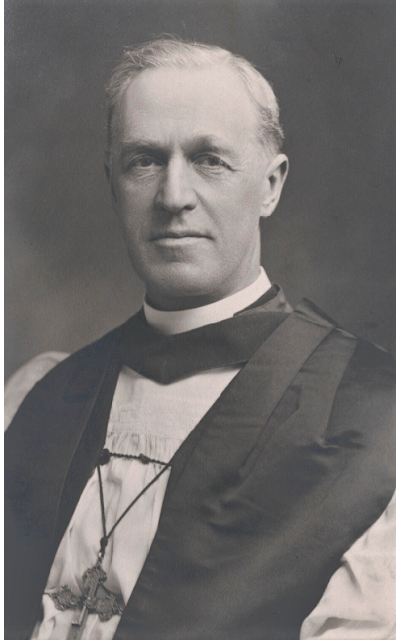
Bishop C.F. De Salis
Whereas the Rev. Newton Howe had made enemies of the Churchwardens at Christ Church, Ernest was warmly welcomed at the Church of St Leonard by the wardens Arthur Hayward and R.J. Luffman. Their friendship was to prove long lasting.
Ernest Howe remained as Vicar at St Leonard until his retirement in 1958, at the age of 74. He was a popular Minister and served his parish with distinction for 22 years, including through the difficult years of the war and the austere post war decade. He enjoyed a peaceful and idyllic life in the Misterton Vicarage. Younger relatives who visited fondly remembered the Vicarage orchard, in which grew a rare striped apple with a wonderfully sweet taste. During my research one descendant of Ernest's told me that "I have been looking for that apple, which I also remember, for the whole of my life since!"
Ernest Howe retired in 1958 and led an unassuming and quiet life until his death in Chard on the 20th June 1972, at the grand age of 89.
He was buried in his much loved churchyard at Misterton. His wife Ivy Alice was buried with him upon her death two years later. The story of Ernest John Rimington Howe, on the surface, is a remarkably simple one. Yet the story of his dedication, hard work, faith and determination ensured he was able to overcome the obstacles placed in his way by his father's past; and is a tale worth telling.
No record exists to show that Ernest ever saw his father again following his move to Sussex at the age of 18.
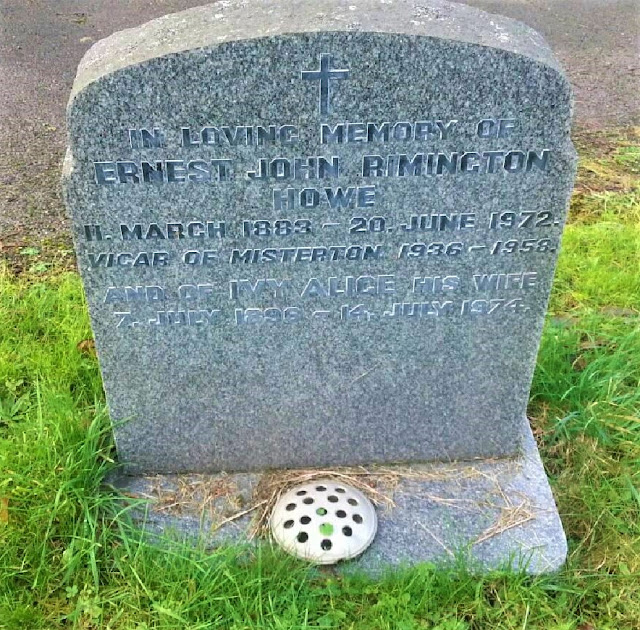
The story of Ernest's father, the Rev. Newton Ebenezer Howe, is told in full in The Beacon On The Hill, available via amazon, or from Christ Church in Swindon.
© Copyright 2025 Mark Bridgeman Author. All rights reserved | Privacy Policy | Web Smart Media